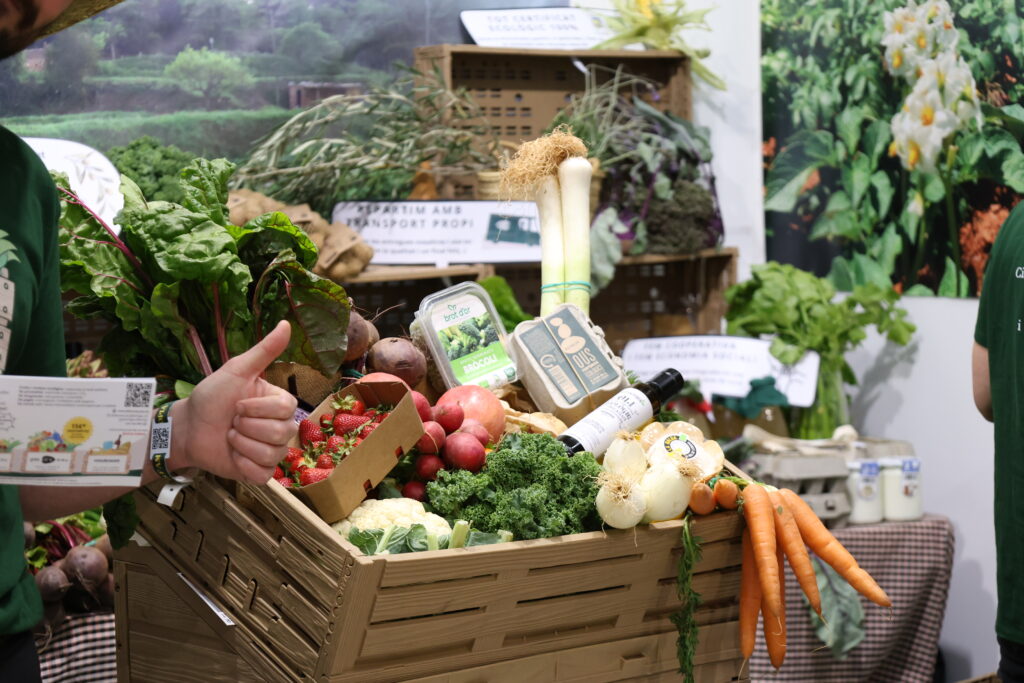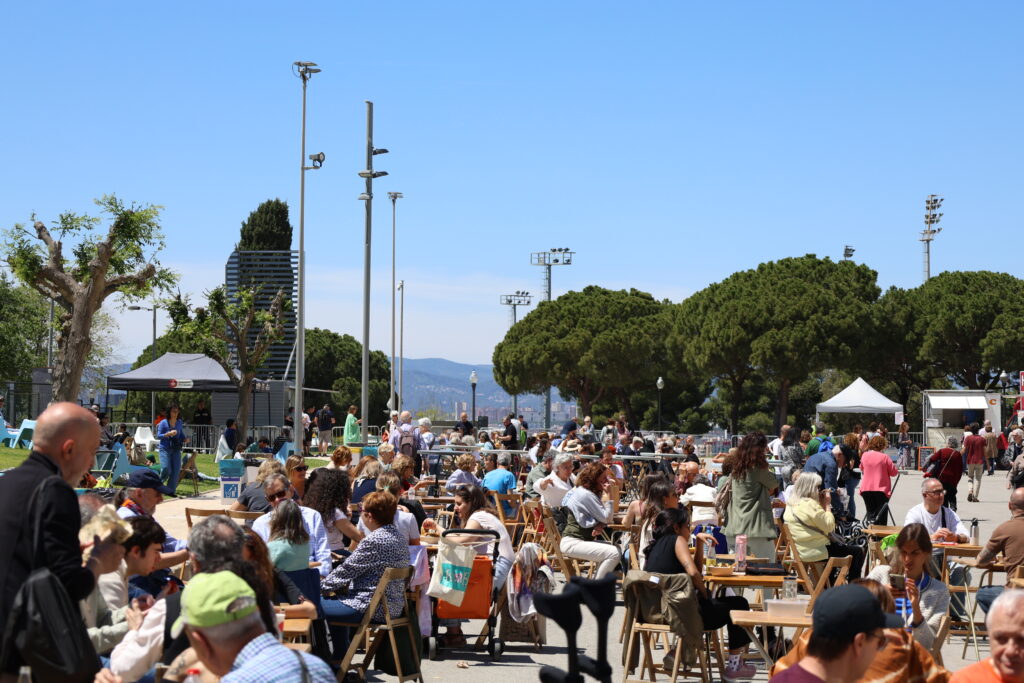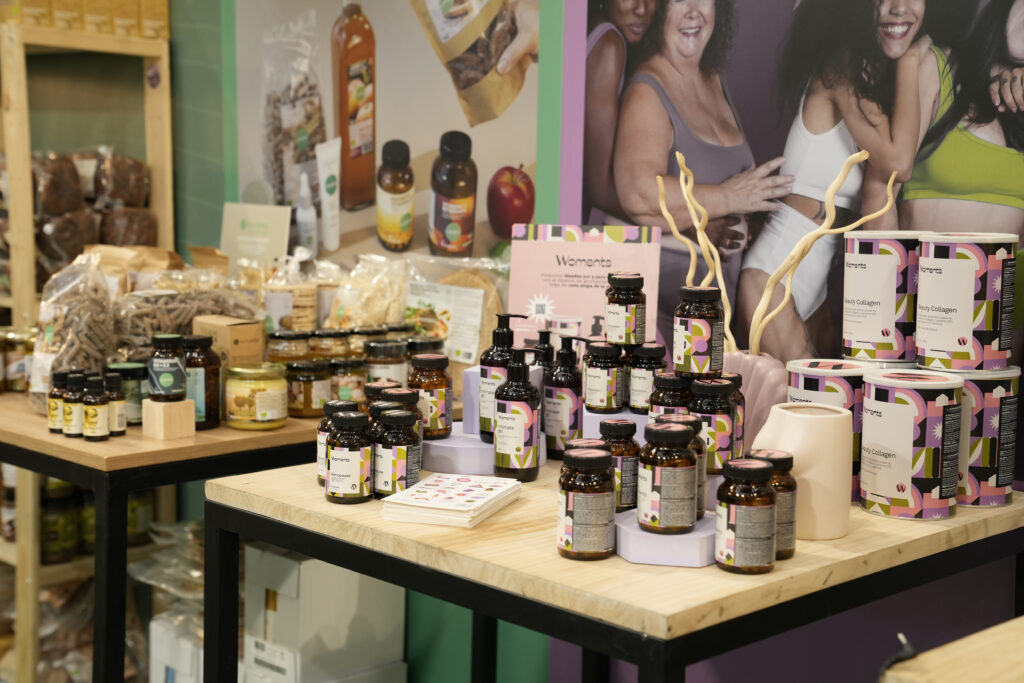This event for organic and sustainable products, is organized annually in three Spanish cities: Madrid, Barcelona and A Coruña. This year it was held in the Catalan capital from May 9 to 12, under the slogan: “You’re hungry for sitopia, come and discover it“. As a reference to the concept coined by Carolyn Steel in her book of the same name. The word Sitopia means the place where the food comes from, and is the sum of the Greek terms sitos (food) and topos (place).
The project was born forty years ago by the hand of Ángeles Parra, director of the fair and president of the Vida Sana association. Who wanted to create a place where ecology was the protagonist, at a time when there was no sector specifically for it. For that reason, BioCultura is defined as a space for responsible consumption and organic products. Eventually it has become a benchmark, as it is the largest event held in Spain under this theme.
Currently, it is a multi-sectoral place attended mainly by people concerned about the products they consume. And it is characterized by presenting numerous items through exhibitors and showrooms. At the same time it offers more than 250 thematic activities, talks or debates, showcooking, children’s workshops and foodtrucks.

The 30th edition of Barcelona
During the four days, around 300 exhibitors participated. These were divided according to the items they sold. For this reason, they were divided into six different groups: food and certified cosmetics, food supplements, sustainable fashion, home and lifestyle. Among these, the first two have stood out for their popularity. The main purpose of the stands is to publicize the products and establish closer contact with their customers.
On the other hand, fifty thousand people attended as audience throughout the event. Most of them are environmental professionals or individuals involved in a sustainable and ecological lifestyle. They are interested in learning about what’s new in the various sectors, as well as participating in the activities organized with professionals. In general, the public attending this event is varied, although the director of Biocultura pointed out that more and more young people are attending.

ETHICAL FINANCE
One of the activities organized for the fair was the talk “Introduction to Ethical Finance and Impact Investing” by Oikocredit. This is an international organization that provides ethical finance services through credit investment for development and poverty reduction. The speaker was David Díaz de Quijano y Barbero, coordinator of Oikocredit in Catalonia and professor of ethical finance and social entrepreneurship at Pompeu Fabra University.
During the talk, a series of data related to sustainability, climate change and inequalities were presented. Through these figures, a relationship was established between the economic system and financial institutions. Most of them invest in lucrative activities that are not related to sustainability, such as fossil energies or armament. In spite of this, some of them are sustainable banks, that is to say, they contain some project aimed at positive impact investments.
As an alternative, David presented ethical financial institutions: those offering ethical investment services and ethical banks. Born during the peace movement of the 1960s and 1970s, these entities seek to generate a positive social impact as a whole. Therefore, they establish ethical-social and environmental criteria for the investment of their capital. Although they do not offer a high economic return, they do guarantee an investment of capital in activities that promote sustainability and human development. Unfortunately, they are still little known due to the topics related to them. Even so, there are platforms such as the European Federation of Ethical and Alternative Banks and Financiers (FEBEA) that promote and publicize these types of entities.
VIDA SANA (Healthy life)
This non-profit association is responsible for the organization of BioCultura. The entity was created in 1974, although it was not consolidated until five years later. And the idea came from a group of people concerned about the environment and their food consumption. Vida Sana is in charge of numerous projects such as training and teaching about environmental education, among others. But its main objective is the promotion of responsible consumption. For this reason, it was physically present at the fair with an informative display, as well as organizing workshops, activities and presentations.
MamaTerra
Every year, the association offers a space for children through the MamaTerra ecological festival. During these four days, this project offered numerous activities with the aim of educating children to respect the environment. In this way, they are taught to create responsible consumption habits and to understand healthy eating.

Among the activities was a workshop to learn how to uncover misleading food advertising, organized by Justicia Alimentaria. A non-governmental organization that promotes the defense of food sovereignty and the transmission of solidarity awareness. The organization carries out numerous campaigns, all of them through social activism and related to food.
In this workshop, children were given a simple challenge. They had to distinguish the deceptions of six food advertisements between braggers and scammers. The former contain attractive information or gifts to emphasize the good side of the product. The latter hide information and imply things that are not true. As a result, the lesson was to show that both types of advertising use deception and manipulation to sell their products. Even though they may contain ingredients that are unhealthy or do not provide adequate nutritional value for the consumer.
Comparto Clima
Another activity of the association for this year’s fair was the participatory workshop “Resilient Encounter” carried out through the project Comparto Clima. Its main objective is to identify and promote lifestyles adapted to climate change in Spain. With the help of Katia Sherer, the person in charge of the research, the workshop aims to collect the results in a guide. So that people can more easily adopt a more resilient lifestyle.
The activity began with a round of “speed dating”, where attendees had to introduce themselves to each other and discuss some aspects related to the workshop. The second part consisted of filling out a form, individually, on ecological habits that they perform on a daily basis in various areas. Finally, the individual answers were shared to discuss the difficulties and solutions they encountered in carrying out these actions.

Biocultura is a benchmark in the sector, as its essence has remained the same since its inception. Thanks to the novelties of the event, attendees persist in achieving a more ecological and sustainable goal year after year. Even so, both the public and vendors believe that there is still much to be done. The main difficulties are to give more visibility and raise awareness among those who are not yet part of this community.





